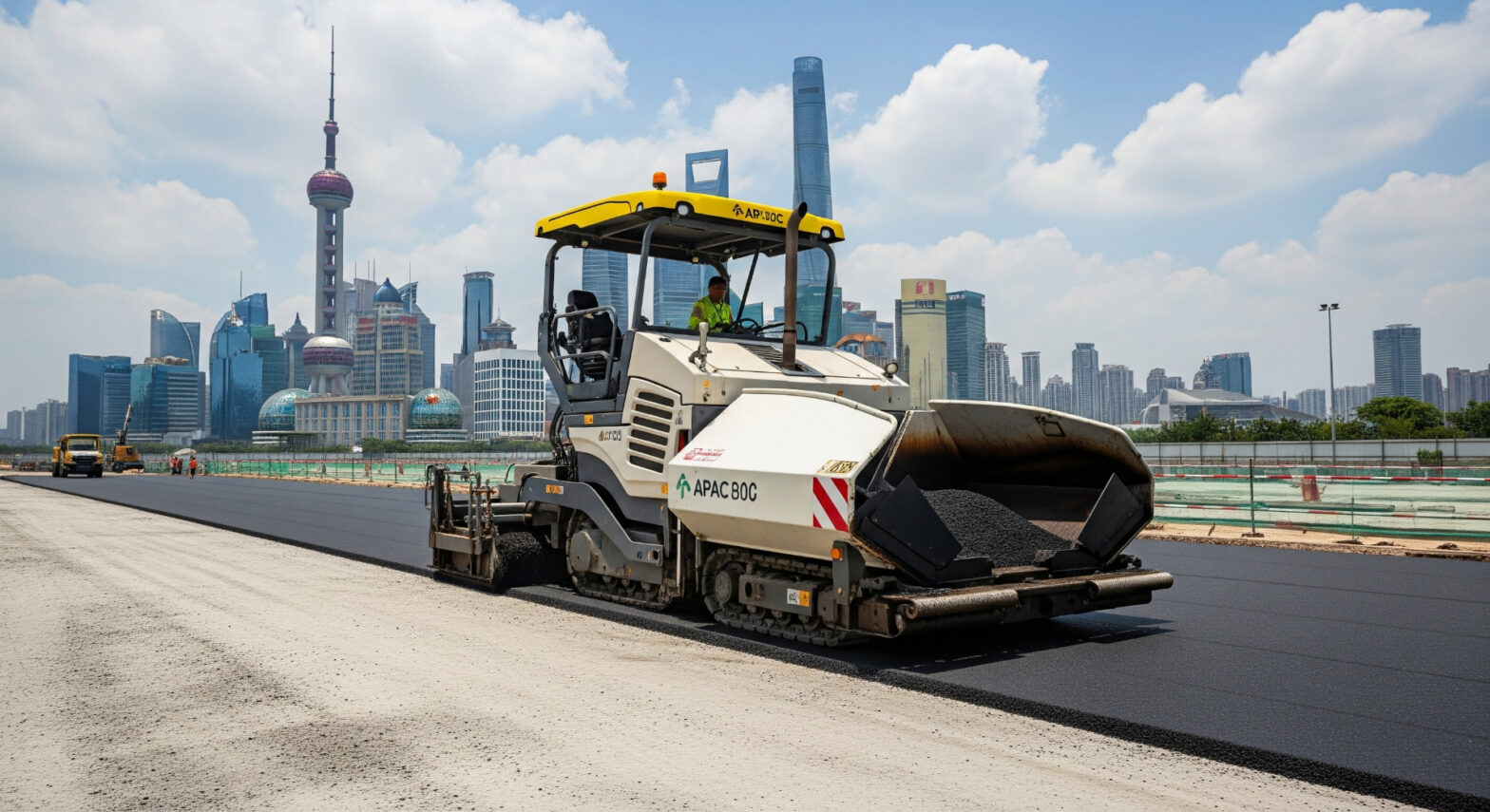The Asia-Pacific region is experiencing an infrastructure boom like no other. From the smart cities rising in the Middle East to the massive transportation networks being built across Southeast Asia, the scale is a testament to the region’s economic might.
For the construction companies leading this charge, success is all about deploying technology that delivers strategic value. In the critical sector of road and runway construction, high-performance asphalt paver rubber tracks has become the go-to technology, underpinning the success of the region’s biggest projects.
This is not just a component choice; it’s an investment strategy. As projects get more complex and timelines get tighter, the ability of these specialized tracks to boost efficiency, protect valuable assets and deliver quality is giving companies across APAC a competitive edge.
The Strategic Case for High-Performance Paving
In high-growth markets, efficiency is key. The giga-projects that define much of the region’s current development—be it new airports, logistics hubs or entire urban districts—demand a seamless workflow. Using modern asphalt paver rubber tracks supports this imperative.
Unlike steel tracks which damage finished surfaces or wheeled systems which struggle on the varied subgrades found on large sites, rubber tracks offer unparalleled versatility. This means one high-value asset—the paver—can operate across multiple phases of a project.
A contractor can move from laying the base course on a compacted earth subgrade to placing the final asphalt surface on a prime-coated layer without having to change machines or implement time-consuming ground protection measures.
This translates into real business benefits:
- Faster Project Timelines: By removing logistical hurdles and maximising machine uptime, projects can be completed quicker, a key factor in a region where speed to market is everything.
- Lower Operational Costs: Eliminating secondary costs such as labour and materials for ground protection improves project profitability.
- More Project Bidding Capability: Companies with versatile, high-performance machinery can bid on more projects, from urban renewal in established city-states to greenfield infrastructure developments.
Investing in Quality: The Technology Behind the Trend
The reliability of these systems is based on advanced material science. Leading manufacturers are constantly innovating, developing proprietary rubber compounds that can withstand the extreme conditions of asphalt paving. These specialized formulas offer better heat and abrasion resistance which is critical for working with hot-mix asphalt.
The structural integrity is ensured by an internal framework of continuous steel cords that can handle the weight and tractive effort of pushing fully laden supply trucks.
With a focus on high-quality materials and robust engineering, a premium track system may be a big upfront investment but delivers a better long-term return through extended service life and reduced risk of costly in-field failures.
For business leaders and procurement managers in the APAC region, this means a shift in buying strategy – from initial cost to Total Cost of Ownership (TCO). A durable, reliable track that minimizes downtime is an asset that pays dividends throughout its life.
Meeting the Needs of a Dynamic Market
As the APAC region sets global benchmarks for architectural and infrastructural innovation, the demand for quality and precision will only get more intense. The technologies that support these standards will be those that deliver control, reliability and a clear economic advantage.
Advanced asphalt paver rubber tracks are one such technology that enables the construction of world-class surfaces that will carry the region’s commerce and communities for decades to come.
For the companies building this future, the message is clear: the foundation of a successful project starts with strategic investment in the right technology, from the ground up.




























